History
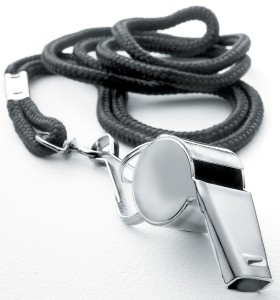 Craig Joubert is one of 26 referees to referee a Currie Cup Final since the first one in 1939.
Craig Joubert is one of 26 referees to referee a Currie Cup Final since the first one in 1939.
South Africa’s provincial teams first played in a competition in 1889. The Currie Cup was added in 1892 but played mostly as centralised tournaments. There was not a Final till 1939 and then Finals were sporadic till 1968 since when there has been a Final each year.
Refereeing the Currie Cup Final is cherished by referees as it is cherished by players who play in it. After all there is only one a year.
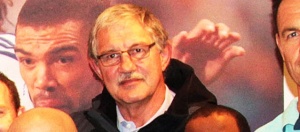
Farewell to a legend of WP Rugby – Hennie Bekker
Tuesday, September 30, 2014 was a sad day when, after a 45-year association with Newlands, Hennie Bekker said goodbye to Western Province Rugby in an official capacity.
The 62-year-old gentle giant has officially retired as an employee of Western Province, having served the union with distinction for so many years.
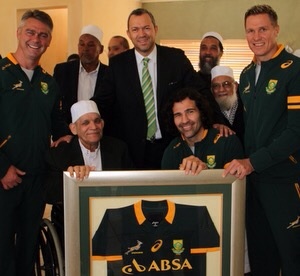
Bok coach Heyneke Meyer, SARU President Origen Hoskins, Victor Matfield and Jean de Villiers hand over a Springbok jersey to Salie Fredericks on Friday.
Mr Oregan Hoskins, president of the South African Rugby Union (SARU), accompanied by a Springbok delegation on Friday visited the recuperating former “Coloured Springboks” captain Salie Fredericks at his house in Gordon’s Bay.
Springbok coach Heyneke Meyer, team manager Ian Schwartz, captain Jean de Villiers and vice-captain Victor Matfield accompanied Mr Hoskins, as they wished Mr Fredericks well with his recovery from surgery.
Fredericks, who was labelled as the “Black Frik du Preez” by some newspapers in his playing days, played more than 200 provincial matches for Western Province in competitions of the former South African Coloured Rugby Football Board, and later the non-racial and anti-apartheid South African Rugby Union.
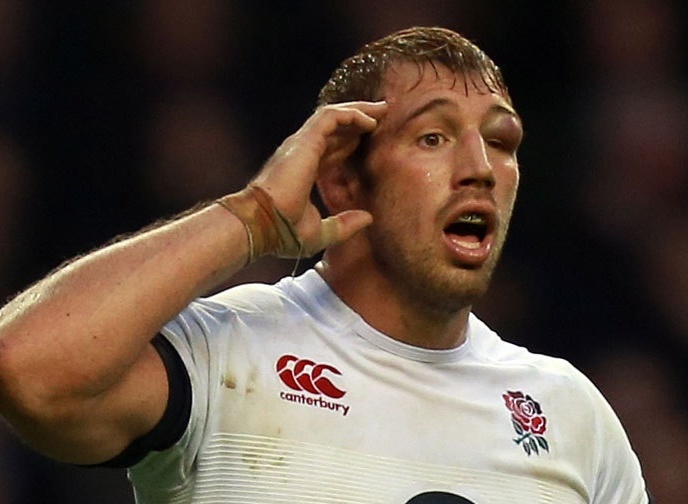
Chris Robshaw
It is 8 November.
England are about to tackle the All Blacks at Twickenham.
For captain Chris Robshaw, matchday starts with a lie-in; he has his own room due to his thunderous snoring. Then comes breakfast, a massage and some physio if required before the forwards go through a couple of plays while the backs play a passing game.
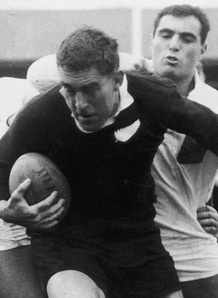
The great Colin Meads
Richie McCaw will add another line to his long list of achievements on Saturday by matching Colin Meads as the most capped All Black ever.
The New Zealand captain will equal Meads’ record of 133 All Black appearances in La Plata against Argentina, in what will be his 132nd Test.
McCaw’s only non-Test appearance for the All Blacks came in 2009 when he captained the side against the Barbarians.
By contrast Meads, whose New Zealand career lasted 14 years from 1957-71, earned just 55 caps for his country, but featured a further 78 times for New Zealand.
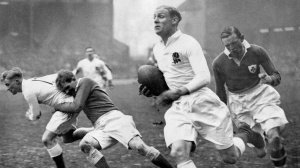
The great Peter Cranmer makes a break against Wales in 1935
International coaches – and selection panels before them – traditionally prize solidity at centre, and nowhere more than in England.
Which is not to say that they’ve not had great creative centres; Jeff Butterfield, Jerry Guscott and Will Greenwood had talents that would have been welcomed in any team in the world.
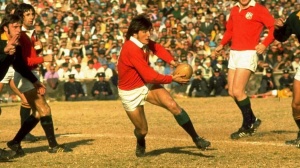
Andy Irvine
The results of today’s referendum in Scotland could have an impact on the British & Irish Lions.
If Scotland votes ‘Yes’, it may have to re-brand to reflect the altered political landscape and constitutional agreement. From their 1891 roots as the ‘British Isles’, today’s poll may see them eventually become simply ‘The Lions’.
With this in mind, Scrum Sevens looks back at seven great Scottish players who gave body, blood and sweat for the British & Irish Lions’ cause.

British & Irish Lions
Former British and Irish Lions prop Phil Vickery has called on the combined side to resist pressure to change their name should Scotland vote for independence next week.
The Lions could be forced to drop the word ‘British’ from their title if Scotland leaves the United Kingdom.
John Spencer, England’s representative on the Lions board and the manager for the team’s 2017 tour of New Zealand, said officials would discuss a possible name change in the event of a ‘Yes’ vote.
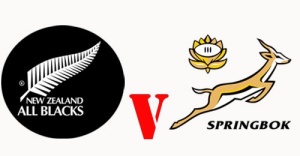 The All Blacks have a higher winning percentage in the professional age against the Springboks than they do the Wallabies and yet it is the Boks who are viewed as the ultimate foe.
The All Blacks have a higher winning percentage in the professional age against the Springboks than they do the Wallabies and yet it is the Boks who are viewed as the ultimate foe.
Questions have been asked in the past few years about whether Australia are still a worthy adversary. A once intense rivalry has lost its edge.
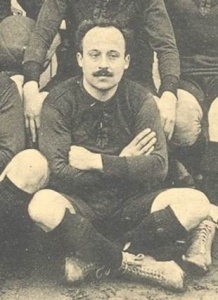
Alfred Mayssonnie in 1912
The odds were always that the first rugby international killed in action in the First World War would be a Frenchman.
The French were the first major rugby nation directly involved, facing a German invasion of their territory almost as soon as the war started.
Stade Toulousain half-back Alfred Mayssonnie – ‘Maysso’ to friends and fans alike – joined up as soon as war was declared, appointed a non-commissioned officer in the 259th Infantry Regiment. Within three weeks he had earned a mention in his regiment’s orders of the day with his bravery in an action at d’Amel-Eton, north-east of Verdun.
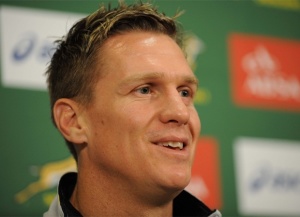
Jean De Villiers
Springbok captain Jean de Villiers cannot quite believe that he is about to play his 100th Test match, given he felt he might not even get a second after he destroyed ligaments in his knee, seven minutes into his debut.
The centre spent nine months recuperating after that Test against France in Marseille in November 2002, returned to play a game as the Springboks warmed up for the 2003 World Cup in Australia, then suffered a shoulder injury.
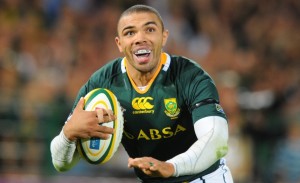
Bryan Habana
Bryan Gary Habana is an institution in the Springbok team and in Perth on Saturday he will become the fourth player to feature in 100 Tests for South Africa.
Speaking ahead of the Boks’ Rugby Championship encounter with Australia, he made it clear that he is not taking the No.11 jersey for granted.
In fact Habana said there are young players – both in the team and back home – pushing him hard.

Bryan Habana to become Springbok Centurion No 4.
Bryan Habana will on Saturday become the fourth Springbok and 33rd player overall to play in 100 Tests when South Africa take on Australia in the third round of the Castle Lager Rugby Championship at Patersons Stadium in Perth (kickoff 12h05 SA time).
The 31-year-old Habana, who made his debut for South Africa against England at Twickenham on 20 November 2004, holds the record for the most Test tries in a Springbok jersey. His 56 Test tries places him fourth on the list of all-time international try scorers.
The three-time South African Rugby Player of the Year (2004, 2007 and 2012), who was also named the IRB Rugby Player of the Year in 2007, will lead the Springboks out on Saturday as he follows Percy Montgomery, John Smit and Victor Matfield in amassing 100 Tests in the green and gold.
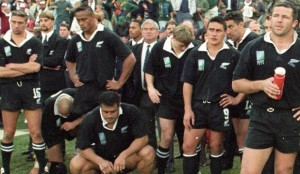
LINGERING PAIN: The 1995 All Blacks look on after losing the World Cup final at Ellis Park, Johannesburg.
The awful truth about the Wallabies’ hammering last weekend is that by 2015 the All Blacks could roll out an entirely different back line and dish it out all over again.
Wallowing in pessimism? Perhaps, but look at the stockpile of talent that wasn’t even in the 23 in Auckland that, in theory, they could select next year.
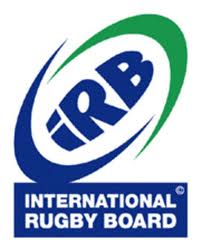 The International Rugby Board will become World Rugby from 19 November 2014 as part of a major rebranding programme.
The International Rugby Board will become World Rugby from 19 November 2014 as part of a major rebranding programme.
The new brand, including a new logo, will be launched at the IRB World Rugby Conference and Exhibition in London on November 17-18.
Global Rugby participation has boomed by more than two million to 6.6 million players over the past four years, driven by the commercial success of Rugby World Cup, the IRB’s development strategies and record investment, strong and vibrant Unions and Rugby’s re-inclusion in the Olympic Games.
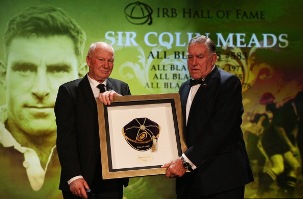
Sir Colin “Pinetree” Meads
Eleven legends of New Zealand rugby have been inducted into the IRB Hall of Fame at a special ceremony in Auckland on Friday 21 August, staged the night before a Bledisloe Cup match in Eden Park.
This latest induction represents the incorporation into the IRB Hall of Fame of many of the International Rugby Hall of Fame, which was recently acquired by the IRB and presentations were made by Hall of Fame panel member Don Cameron and New Zealand Rugby chief executive Steve Tew. The new inductees are: Fred Allen, Don Clarke, Grant Fox, Sean Fitzpatrick, Michael Jones, Ian Kirkpatrick, John Kirwan, Terry McLean, Colin Meads, Graham Mourie and George Nepia.
IRB Chairman Bernard Lapasset said: “The IRB Hall of Fame recognises those who have made an indelible mark on our sport through feats on the field of play, displays of great character or through their tireless and inspirational work in driving forward our great Game.”
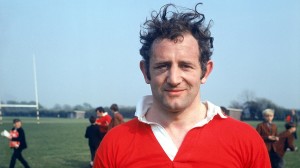 Selectors are sitting targets, an inevitable butt for criticism of the teams that did not quite work out.
Selectors are sitting targets, an inevitable butt for criticism of the teams that did not quite work out.
But there are times when they are entitled to congratulate themselves, never more than when a single selection meeting launches not just one, but two or more outstanding international careers.

Mike Brewer says if your name creeps up in All Black losses the big black marker comes out.
It was probably a good thing for Mike Brewer’s rugby career that the defeats that link him to Eden Park’s two remarkable All Blacks streaks happened far enough apart to escape much notice.
Brewer, the Pukekohe-born flanker who first made his name representing Otago, played 61 games — including 32 tests — for the All Blacks between 1986 and 1995.

A youthful Phil Kearns and David Campese showing off the World Cup in 1991.
According to those Wallabies who have played there, nothing is particularly forbidding about the graveyard of Eden Park. It’s not the sound of a hostile crowd, or the reverberation of the grandstand above the visitors’ dressing room.
The spookiest part for those in gold jumpers is the number: how many years it has been since Australia last beat the All Blacks at the famous Auckland ground.
Twenty-eight years… Boo!
Alan Jones coached the Wallabies in 1986, and he knew in the opening 20 minutes of the third and deciding Test of the series that his Wallabies were about to carve out their own slice of Bledisloe Cup history.
“I knew they would throw the kitchen sink at us,” Jones recalls. “I picked up that vibe by my contacts around the pubs and so on.”
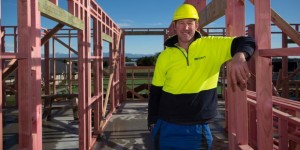
Former All Black Chris Jack is building a new career.
In his heyday, former lock Chris Jack was accustomed to being lifted in countless lineouts. These days, he’s the one doing the heavy lifting.
The 35-year-old has taken up a building apprenticeship, a move which saw him hang up the boots after 14 years of professional rugby.
“It’s rewarding but it’s a big learning curve having not done much outside of school except professional rugby,” Jack says.

New Zealand side perform the haka before taking on South Africa in Richmond, Surrey, reportedly in April 1916. No further details of the match exist, with the All Blacks’ last official Test coming in August 1914.
Rugby Union did not shut down completely with the declaration of war in August 1914.
Australia and New Zealand were, as dominions of the British Empire, included in Britain’s declaration on 4 August, but inevitably the matter was less urgent.
The machinery of military recruitment clicked into action and the Wellington Rugby Union cancelled its programme of second, third and fourth grade matches on the following Saturday to enable players to attend volunteer parades. But war caught both countries in mid-season and with the All Blacks part way through a tour of Australia.

Yes, it’s Rugby-Talk.com’s birthday today!
On 28 July 2009 a number of us packed our goodies and left the place where we previously discussed rugby, because it was’nt pleasant to discuss rugby anymore. Our discussions there was marred by terrible fighting between bloggers, by racial slurring and racial abuse and it was a shambles, to say the least.
We had our own “THING” in mind and amongst us there were 2 IT guys, myself and a chap called Ed-The Lion. We immediately started a temporary blog where a few friends continued to discuss rugby, whilst I started constructing our new home, Rugby-Talk.com.
At that stage web design was not my strong point or my expertice, but as an avid and accomplished coder, I set to work and chose the WordPress platform after proper research.
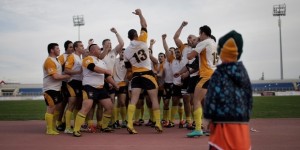
Cyprus players celebrate a victory over Austria in the European Nations Cup. It was their 21st in a row and they have won two more since.
When the All Blacks take the field against the Wallabies on Saturday, they’ll know they stand 80 minutes away from a landmark 18 successive wins.
If they come out on top, they’ll leapfrog the All Blacks of the late 1960s and the 1997-98 Springboks to further their reputation as one of the greatest teams in rugby history.
It’s an impressive feat, and would be a record for a tier one nation, but it won’t strictly be a world record.
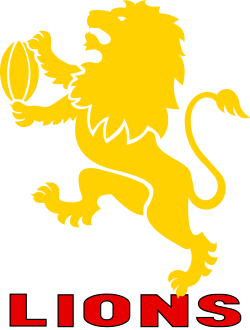 The Xerox Golden Lions will run out in navy blue jerseys as they kick-off their Absa Currie Cup campaign against the Vodacom Blue Bulls at Ellis Park on Saturday.
The Xerox Golden Lions will run out in navy blue jerseys as they kick-off their Absa Currie Cup campaign against the Vodacom Blue Bulls at Ellis Park on Saturday.
The match, which will mark the Golden Lions Rugby Union’s 125th anniversary, will see the Xerox Golden Lions forgo their standard white jersey with the red strip in order to commemorate this special occasion.
The jersey will be unveiled at a 125-year celebration banquet, to be held at Ellis Park this evening. Guests will include past and present players, staff and administrators as well as supporters and sponsors who have all been involved in building the GLRU legacy.
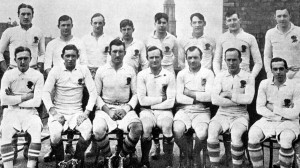
The England team pose for a group photo in 1914
If there were any doubts or misgivings in the world of rugby 100 years ago this month as the First World War broke out, they were very well concealed.
The Rugby Football Union and other national governing bodies rapidly decreed a closedown after Britain’s declaration of war on August 4, with the Scots offering Inverleith – Murrayfield’s predecessor – for military use.
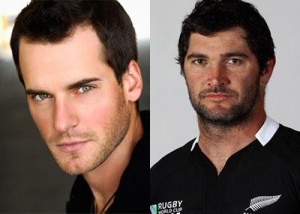
David de Lautour, a Kiwi born actor, has been cast to play the role of Stephen Donald in the upcoming movie, The Kick.
Rugby World Cup champion Stephen “Beaver” Donald has opened up about being the target of vile hate mail and the anguish his family endured when he was subjected to a torrent of public abuse.
The All Blacks cult first-five became a hero around New Zealand when he booted the team to victory in their nail-biting 2011 Rugby World Cup 8-7 final victory over France.
But in the lead-up to the screening of telemovie The Kick, which relives his magic moment, Donald has told how he was treated after being blamed for costing the All Blacks victory against the Wallabies in Hong Kong a year before the tournament.
 From horror Tahs to Super stars – it’s been a rocky, 19-year ride for Waratahs rugby fans.
From horror Tahs to Super stars – it’s been a rocky, 19-year ride for Waratahs rugby fans.
It certainly hasn’t always been pretty – think Matt Dunning’s brain explosion field goal, the 96-19 debacle in Christchurch and getting belted by the Brumbies in the semi-finals.
Yes, the Waratahs have had plenty of lows to match their rugby highs.
Perennial underachievers in the world’s toughest provincial competition, the Waratahs had always boasted one of the most talented playing rosters but were unable to turn that into on-field success.

Sir Colin Meads
Sir Colin Meads will finally be inducted into the International Rugby Board Hall of Fame.
The IRB Hall of Fame and the International Rugby Hall of Fame will merge this year to create one definitive rugby hall of fame.
It will see 37 greats of the game not already included in the IRB Hall of Fame inducted, creating a unique record of those who have excited and inspired rugby fans.
For years Sir Colin Meads had missed out on the IRB Hall of Fame, but now he will be recognised alongside several other greats.
They include Sean Fitzpatrick, Grant Fox, George Nepia, John Kirwan and Graham Mourie.

Joost van der Westhuizen
Five Springbok legends are set to be inducted into the International Rugby Board’s Hall of Fame.
Joost van der Westhuizen, Naas Botha, Morné du Plessis, Danie Gerber, Hennie Muller are among 37 players to be inducted into the IRB Hall of Fame in the next year.
The news comes alongside the announcement that the International Rugby Hall of Fame and IRB Hall of Fame are to merge.
 The choice of England as the host nation for next year’s Rugby World Cup is a fitting one, as it is of course the birthplace of the game.
The choice of England as the host nation for next year’s Rugby World Cup is a fitting one, as it is of course the birthplace of the game.
There is a good sense of continuity after the 2011 edition in New Zealand, as the Land of the Long White Cloud is considered one of the sport’s great heartlands. There is a sense of the battle for the Webb Ellis Cup moving from one side of the world to the other.
The southern Siberian city of Krasnoyarsk may not be the geographical halfway point between Eden Park and Twickenham but it is not too far from it at nearly 8,000 miles from Auckland and almost 4,500 miles from London.
So, perhaps it is apt that the Russian city is to play host to the Rugby World Cup 2015 qualifier between Russia and Zimbabwe with a place in the repechage final against either Uruguay or Hong Kong up for grabs.

Former All Black Eric Anderson in 2006
Former All Black front-rower Eric Anderson has died.
Prop Anderson, who was 83, played 10 matches for the All Blacks on the tour of Australia and South Africa, scoring two tries against Western Australia.
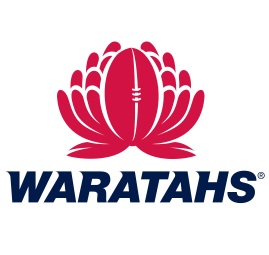 Injured skipper Dave Dennis believes Waratahs’ unity will see them win Super Rugby title.
Injured skipper Dave Dennis believes Waratahs’ unity will see them win Super Rugby title.
THE Waratahs must overcome one of the longest losing streaks in professional sport to win their first Super Rugby grand final, but injured skipper Dave Dennis believes his team’s unshakable unity will finally deliver a win and the premiership against the Crusaders on Saturday.
The Tahs have not been beaten the Crusaders in a decade, losing 11 straight games that include their previous two grand finals in 2005 and 2008.
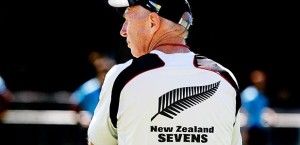
Sir Gordon Tietjens is New Zealand’s legendary sevens coach with training techniques to scare the fittest players.
He’s one of the most decorated coaches at the Commonwealth Games, but where did it all begin for New Zealand’s long-time Sevens coach?
“From where he was, from a fancy-free, practical joking, happy go lucky player to where he is now. It’s bloody legendary.”

Ewen McKenzie
Forget the All Blacks’ attempt to break the world record for most wins in succession, Wallabies coach Ewen McKenzie plans a record of his own.
McKenzie is eyeing Australia’s all-time record of 10 wins in a row this year, with his side currently sitting on seven successive victories.
Most focus leading up to the next month’s opening Bledisloe Cup test between the transtasman rivals will be on New Zealand’s pursuit of 18-straight victories, never achieved by a major test nation.
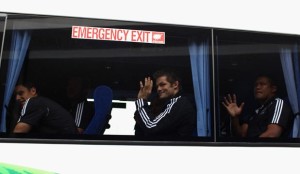
BACK SEAT: Where the All Blacks sit on the team bus is one of the great traditions around the team that continues to survive. Dan Carter, Richie McCaw and Keven Mealamu wave to fans from the team bus.
 It’s a place that has been central to the All Blacks’ domination of world rugby, a place where tactics have been spawned, standards set and discipline dished out.
It’s a place that has been central to the All Blacks’ domination of world rugby, a place where tactics have been spawned, standards set and discipline dished out.
It’s the back seat of the team bus, where seats are filled according to seniority, and positions are treasured.
It’s a ritual that has survived the test of time, though there have been tinkerings along the way, especially to accommodate the demands of the professional era.
Respected Hawke’s Bay rugby administrator Dr Tom Johnson, a former All Blacks trialist, has co-authored Legends In Black, interviewing some of the greats of the Kiwi game to try to unravel some of the secrets of the team’s culture and remarkable success.
They didn’t hold back when he confronted them regarding the seating arrangements on the team bus down the years.